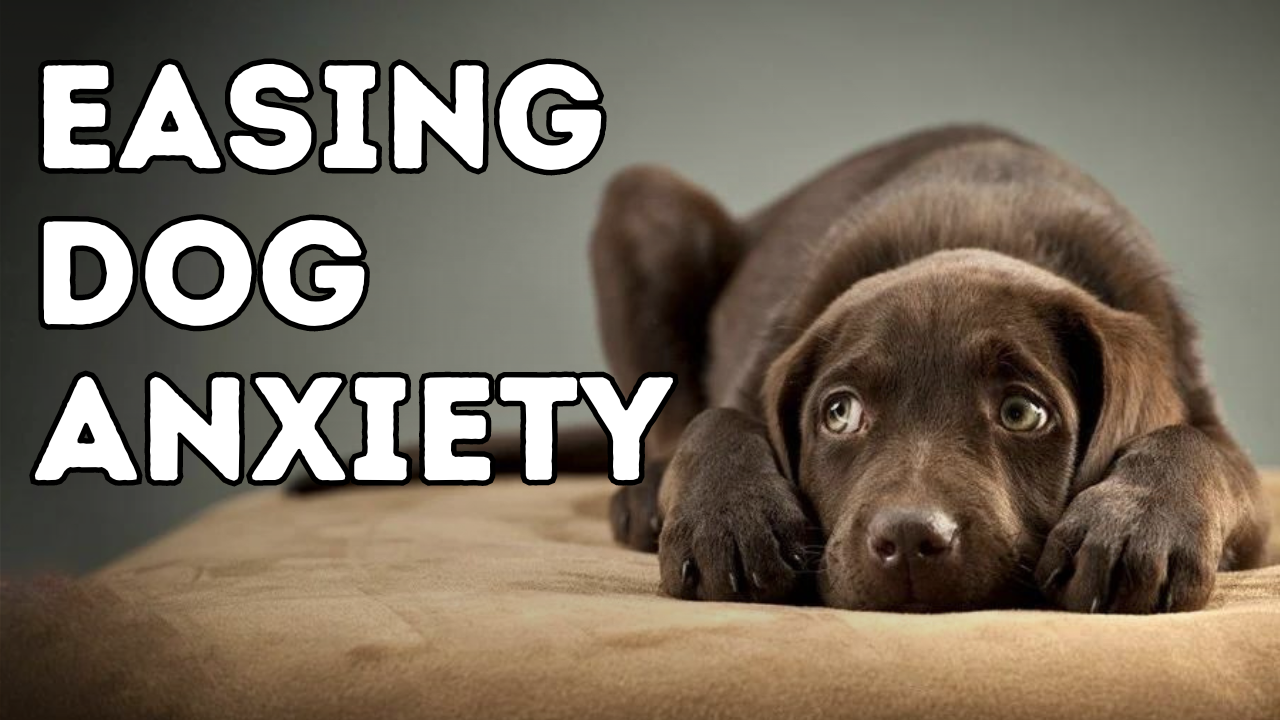How to Naturally Calm Your Dog: Top Holistic Anxiety Remedies

May happens to be Mental Health Awareness Month for humans while the first week of the month was Dog Anxiety Awareness Week.
It turns out that with the pandemic- less socialization- MORE anxiety.
When my dog Tula is panting excessively- such as being on the exam table, I am finding that the CBD is being very helpful to take the edge off.
I do have a Natural, Whole Plant Extract CBD tincture for Dogs and Cats – it’s here:


Increasing Number of Dogs with Anxiety
Over the past several months, veterinary hospitals have observed a significant increase in dogs exhibiting signs of generalized anxiety and fears. This trend could be linked to reduced socialization opportunities during the pandemic. As a veterinarian, I’ve noticed that some dogs may have a genetic predisposition to anxiety, which can manifest at a young age when socialization is most crucial. Furthermore, dogs can develop anxiety due to their experiences and interactions beyond this critical period.
Recognizing Signs of Anxiety in Dogs
The manifestations of fear and anxiety in dogs are quite telling. Symptoms may include cowering, hiding, dilated pupils, drooling, withdrawal, lip licking, yawning, and trembling. Understanding these signs is the first step in helping our furry friends manage their anxiety effectively.
Behavioral Tips for Managing Anxiety
Increase Exercise: Research consistently shows that higher levels of exercise can significantly reduce aggression, fear, and anxiety in dogs. A good run or game can do wonders for their mental health.
Counter Conditioning: When your dog shows fear, it’s crucial to minimize the stimulus causing this reaction. You can then command them to ‘sit’, and upon compliance, reward them with praise or a playful game. This technique aims to associate the fear-inducing stimulus with a positive experience.
Systematic Desensitization: This method involves safely exposing your dog to the anxiety or fear-inducing stimulus at a level that does not provoke fear, followed by counter-conditioning strategies.
Natural Anti-Anxiety Relief: Drug-Free Remedies
Acupressure
One effective point is the hall of impression (Ying Tang), located between the eyebrows. Applying gentle, firm pressure here for 5 to 10 minutes can help alleviate anxiety and stress. I regularly use this technique and find it quite beneficial.
Valerian Root
This herb acts as a natural muscle relaxant and is excellent for easing anxiety. The typical dosage for a dog is 1/2ml per 20 lbs of body weight, administered 2-3 times per day.
ThunderShirt
Designed to calm anxiety related to noise aversion, the ThunderShirt works like a comforting hug. Alternatively, a simple home-made wrap using a blanket can also be effective. I have used this method on my own dog, Tula, with mixed results.

L-theanine
Extracted from green tea, this amino acid helps calm the brain. It’s safe to use with no known side effects, and it’s best given before anxiety levels peak. The recommended dose is 20mg per 10 lbs of body weight, twice daily.
Zylkene
This natural remedy, derived from casein protein found in mammal milk, helps create a sense of calm and relaxation in dogs. It is especially useful during stressful situations like thunderstorms or vet visits. Zylkene is lactose-free, making it suitable for lactose-intolerant pets, and is available in various strengths.
Probiotics
The gut-brain axis plays a crucial role in mental health. Bacteria in the gut produce chemicals that communicate with the brain, influencing mood and anxiety. For example, serotonin, known as the ‘happy chemical’, is predominantly produced in the gut and is essential for emotional well-being.
Cannabidiol (CBD)
CBD has shown great promise in reducing anxiety in dogs, cats, and even humans. A starting dose is typically 3mg per 10 lbs, administered every 12 hours. In cases of severe anxiety, dosages can be safely increased.
For those managing an anxious, arthritic, or cognitively declining pet, I highly recommend trying my Ultimate CBD for Dogs and Cats. It’s a whole plant extract and includes a variety of beneficial cannabinoids, with hemp seed oil as the carrier, enhancing its effectiveness.
By understanding and addressing anxiety in dogs through these behavioral and natural remedies, we can significantly improve their quality of life and strengthen our bond with them.

